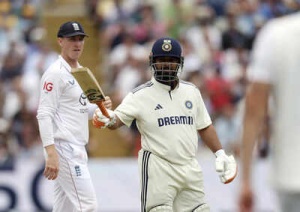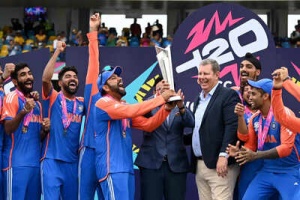The Asia Cup saga may be nearing a resolution. While definitive conclusions remain premature, a growing sense of optimism surrounds the continental championship, a significant shift from previous uncertainties fueled by tensions between India and Pakistan.

Although nothing is set in stone, a formal decision could be reached next week. The Asian Cricket Council (ACC) is aiming to release the schedule for the six-team tournament in the first week of July, coinciding with a planned meeting.
The ACC is reportedly targeting a start date in the second week of September, potentially around September 10, for the T20 format tournament. Participants are expected to include:
Promotional activities for the tournament are already underway.
The UAE remains the leading contender to host the event, although a hybrid format is also under consideration. While India is the designated host, ACC previously decided that Asia Cups hosted during India or Pakistan's turn would be held at neutral venues.
The tournament faced uncertainty after the Pahalgam terror attack in April. Tensions further escalated following India's Operation Sindoor against Pakistan in May, raising concerns about the tournament's viability and leading to calls for India to boycott Pakistan in multilateral events. India currently does not participate in bilateral cricket with Pakistan.
Recent developments suggest a potential shift. The International Cricket Council (ICC) released schedules for two major events: the Women's ODI World Cup in India and Sri Lanka, and the Women's T20 World Cup in England. In both tournaments, India and Pakistan are slated to compete against each other.
While officials from the BCCI, ACC, and ICC have refrained from public statements, cricketing ties between the two rivals seem likely to continue, at least in global events. These matches are significant revenue streams for global cricket, benefiting the ICC, ACC, and their member boards. While India and the Board of Control for Cricket in India (BCCI) aren't necessarily dependent on revenue from these high-profile encounters, the governing bodies heavily rely on it.
Newer articles
Older articles
 Gavaskar Calls for Kuldeep Yadav's Inclusion in Second Test Amid Bumrah Fitness Concerns
Gavaskar Calls for Kuldeep Yadav's Inclusion in Second Test Amid Bumrah Fitness Concerns
 Early Warning Signs: 5 Heart Attack Symptoms to Watch Out For a Month in Advance
Early Warning Signs: 5 Heart Attack Symptoms to Watch Out For a Month in Advance
 Oral Cancer: Spot the Signs, Understand the Risks, and Why Early Detection is Key
Oral Cancer: Spot the Signs, Understand the Risks, and Why Early Detection is Key
 Rishabh Pant's Composed Reply Deflates Harry Brook's Sledge in Edgbaston Test: Watch Key Moments
Rishabh Pant's Composed Reply Deflates Harry Brook's Sledge in Edgbaston Test: Watch Key Moments
 Rohit Sharma Credits Barbados as India's Lucky Ground After T20 World Cup Triumph
Rohit Sharma Credits Barbados as India's Lucky Ground After T20 World Cup Triumph
 Science-Backed: Simple Habits for a Stronger Heart, According to Experts
Science-Backed: Simple Habits for a Stronger Heart, According to Experts
 Jaiswal Aims to Eclipse Gavaskar's 49-Year-Old Record in Edgbaston Test Showdown
Jaiswal Aims to Eclipse Gavaskar's 49-Year-Old Record in Edgbaston Test Showdown
 FIFA Club World Cup 2025: Upsets, Messi Magic, and 2026 World Cup Concerns Emerge From Group Stage
FIFA Club World Cup 2025: Upsets, Messi Magic, and 2026 World Cup Concerns Emerge From Group Stage
 Prithvi Shaw Admits to Missteps, Lost Focus Amid Career Setbacks
Prithvi Shaw Admits to Missteps, Lost Focus Amid Career Setbacks
 India's Fielding Failures Under Scrutiny After First Test Defeat to England: Former Selector критикует Dropped Catches
India's Fielding Failures Under Scrutiny After First Test Defeat to England: Former Selector критикует Dropped Catches